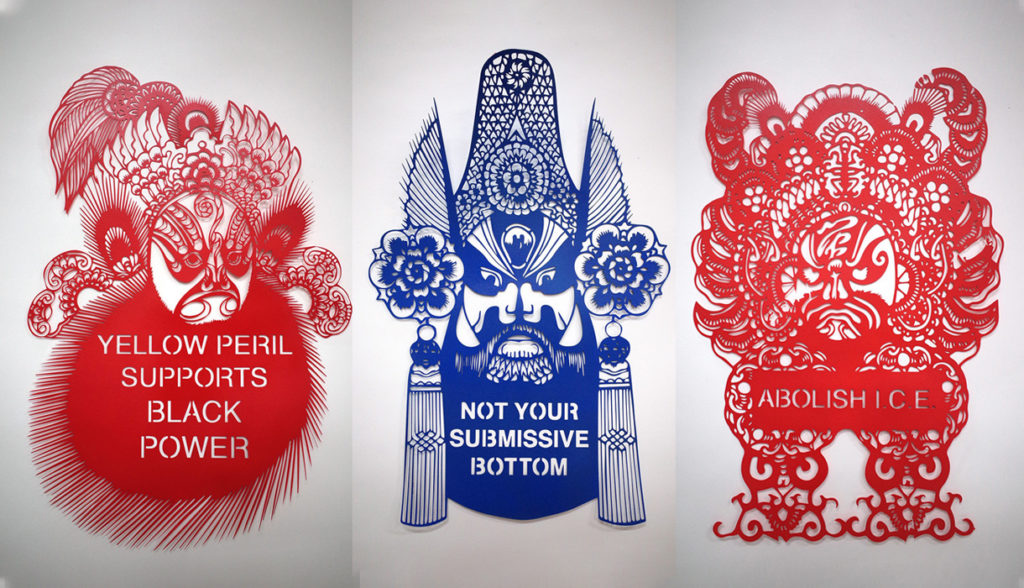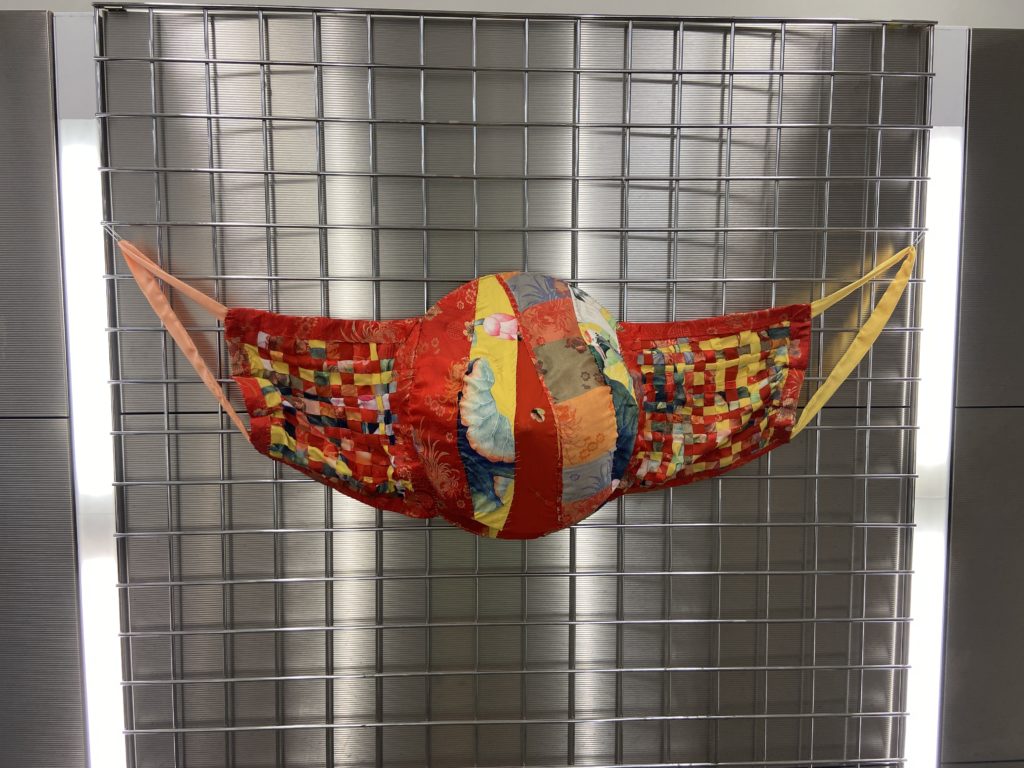
Rice University Exhibit and Webinar Features Asian American LGBTQ Creatives
Artists explore COVID-19, racism, and unity in their works and talks.

ReModel Minority series, 2019
Laser and Hand-cut Paper
The pandemic has exacerbated and highlighted this country’s deep-seated racism against Asian Americans. In response to this and other social-justice issues now dominating the headlines, Rice University’s Houston Asian American Archive (HAAA) decided to create an exhibit and artist-talk series that portrays the Asian American experience from the 1800s through today.
HAAA’s exhibit, Faces in the Pandemic, is on view through November 15 at the Fondren Library on the Rice campus. Additionally, HAAA, a research and community outreach project managed by the Chao Center for Asian Studies, will host two webinar events featuring Houston-based Asian American LGBTQ artists Brandon Tho Harris, Victor Ancheta, and Antonius Tin-Bui. Their artist talks will emphasize how their work reflects the Asian American community’s fight for equality, among other issues.
Harris and Ancheta will describe their contributions to the exhibit on October 7 at 6 p.m.
Bui, a nonbinary Vietnamese American who uses they/them pronouns, will speak about their work on October 14 at 6 p.m.

Escape, 2020
Resin, paper, plastic, twine
“The webinars are a way for the artists to voice their individual creative processes,” HAAA associate curator Ann Shi says. “It is also a way for people to ask questions, engage with these artists, and learn more about the artwork. [The webinars should] bring the pieces into context.”
Shi hopes audiences will reflect on the themes and topics explored in the exhibit and webinars, such as intolerance, gender stereotypes, and the purpose of artwork during times of crisis. “This is an exhibit [and artist-talk series] of the moment,” she notes.
She compares artists to prophets and poison—a powerful catalyst that forces society to feel pain, a metaphor for the racism and inequality prevalent in our country. Artists pressure society to recognize, confront, and overcome pain, which is demonstrated in the work of all three artists.
Although his pieces typically examine the trauma from his parents’ generation that fled the Vietnam War, Harris’ contribution to HAAA’s exhibit emphasizes healing. During his online webinar, Harris, a gay Vietnamese American man, will analyze the significance of unity and how Asian American communities are still fighting for equality in his mixed-media piece titled Not Your Virus, a giant mask made of traditional Vietnamese garments, conical hats, and gold thread.
Alongside Harris, Victor Ancheta, a gay Filipino American man, will describe his painting and sculpture. The painting, The Good Hour, includes haunting neon green lights and drawings of a skull, those who died due to COVID-19, and George Floyd, who was killed during his arrest in Minneapolis. Ancheta’s sculpture, Escape, is made of little diverse figures connected by a red string on birds trying to fly away from the coronavirus disease. Ancheta will discuss at his webinar why and how he explored the far-reaching effects of the pandemic and the inevitability of death.
Like Ancheta, Bui’s work alludes to the Black Lives Matter movement. To create dialogue around Asian stereotypes, the “model minority” myth, and how the myth exists to separate the Black and Asian American communities, Bui, a Bronx-born artist, will examine their series of intricately laser- and hand-cut text-based images titled ReModel Minority.

Not Your Virus, 2020
Mixed Media: Traditional Vietnamese Garments (Áo Dài), Conical Hats (Nón Lá), and Gold Thread
Bui’s work emphasizes phrases such as “NOT YOUR SUBMISSIVE BOTTOM,” “YELLOW PERIL SUPPORTS BLACK POWER,” and “ABOLISH ICE” to address Asian stereotypes, Asian Americans’ solidarity with the Black Lives Matter movement, and the Trump administration’s scapegoating of Asian immigrants.
Shi adds that the exhibit and artist talks are ways for audiences to learn more about Asian America’s buried history by looking back on the days of the Chinese Exclusion Act and Jim Crow laws. She hopes the showing and webinars prompt reflection and a change in attitudes.
“I hope people reflect on these facts and are able to imagine a future for Asian Pacific Islander Americans where they [become] a part of the mainstream narrative,” Shi says.
People can register for the artist-talk series at haaa.rice.edu/events. Individuals can also view the exhibit in person by reserving a time at calendly.com/visithaaa/reservation?back=1&month=2020-10.
For more information on the exhibit and webinar, visit haaa.rice.edu/faces-in-the-pandemic.










